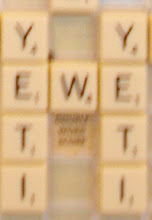
Universal
Released: September 25, 2006
Andrew W.K., with his debut record, I Get Wet, was heralded as a savior of rock. Every song was a fist pumping anthem, flawlessly reducing the ambitious studio tricks and masterful composition of Queen to the stupidity of AC/DC. The follow-up, the Wolf, turned the volume up, but lost all the naive punch that made the debut so heart-warming, in turn losing its timeless optimism. Close Calls With Brick Walls takes things in new, ambitious directions. It also manages to rehash some of the old. It is a sprawling, unfocused train-wreck. That's not to say it's a bad record by any means.
The two opening tracks don't even have guitars. They're beautiful, impressionistic splashes of Andrew's now refined voice and swirling, psychedelic guitars. They are jaw-dropping and gorgeous. Then enters "Not Going to Bed," what sounds like a left-over from the previous record. The record then offers non-stop one-two punches of loud, fast neanderthal-rock, followed by what I come to the plate for every time: piano-driven sing-alongs, with soaring
guitars and pounding drums.
At this point, it seems unlikely that Andrew W.K. will ever match the heights of his debut, but if he manages to focus in on the new direction he offered a fleeting glimpse of at the onset of Close Calls With Brick Walls, there will still be reason to give him another try. His live show will always be worth seeing, if nothing else.
-Dave Wolkensperg




























